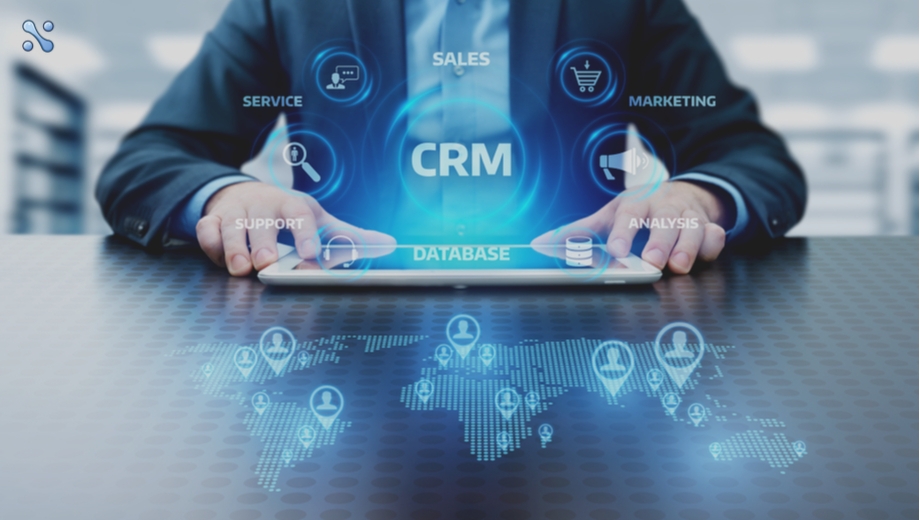The majority of CRM solutions include sufficient power out of the box to handle all common use-case scenarios. However, customization enables you to extract significantly more value from your CRM tool by tailoring it to your specific needs. To help you better understand how customised CRM software can help you achieve your business goals, I’ve listed some of the most frequently available CRM customization options, along with the associated benefits.
Advantages of CRM customization
What customizations should you make to your CRM?
Although the CRM components we are going to describe below are primarily Microsoft Dynamics 365, but all other major CRMs, such as Salesforce and HubSpot, offer comparable customization options.
Fields and Entities
A CRM entity is a discrete piece of information contained within an object. These objects are used to represent prospects, leads, customers, and other entities with which your business may interact. By creating custom entities, you can create customised strategies for dealing with customers based on their position in a sales funnel.
Fields allow you to further customise entities. The majority of pre-defined CRM entities include a standard set of fields, such as name, email address, and so on. By removing superfluous fields and adding custom ones, you can more efficiently classify your customers.
Forms
Entities and fields are placeholders for customer data. And the method for submitting this information is via forms. Typically, CRM forms enable you to enter text, select items from a drop-down menu, check boxes, and toggle various options. Customizing forms enable you to alter input methods and rename them to make them more intuitive.
Additionally, forms can be customised for accessibility. You can create customised forms with various options for sales representatives, marketers, and customer service representatives, among others. For example, whereas a sales representative requires the ability to specify the value of an order placed by a client, a customer service agent benefits from a form designed to track an issue that prompted a customer to contact them.
Graphs and views
Forms are used to collect data from CRM users, whereas dashboards and views are used to generate insightful output. They are a type of data visualisation that provide users with the information necessary to perform their daily tasks effectively.
Views can be customised in terms of the type of data displayed and the manipulation capabilities available, such as sorting and highlighting. Customizing dashboards entails displaying on a user interface the functions required to complete a specific task.
Workflows
A CRM workflow is a collection of actions that are typically performed sequentially. Rather than manually selecting actions from menus, you can encapsulate them in a custom workflow.
Workflows and workflow actions can be executed automatically based on user-defined rules. For example, you can define the action of emailing, specify a time- or trigger-based condition for when it is sent, and define a follow-up action based on the email’s outcome.
The primary advantages of CRM customization
Increased departmental productivity
CRM customization can help your sales, customer service, and marketing departments work more efficiently. This occurs as a result of the automation of your specific tasks and the resulting reduction in time spent on data entry, customer segmentation, and other tasks.
More efficient task allocation
CRM customization enables you to effectively compartmentalise your operations. It minimises instances of overlapping activities when CRM users are unaware that they are performing the same tasks.
Flexibility
Customizing CRM enables you to obtain a solution that is tailored to your specific business processes. This means that your CRM solution will adapt to the unique characteristics of your business, not the other way around.
Increase the value of your CRM
CRM software includes a slew of powerful features that can benefit any business.You can leverage CRM customization capabilities to achieve even better business outcomes. If you’re new to CRM customization or have made a mistake, reach out to team Neuronimbus to ensure that your CRM fully meets your business needs.
Reference: [1]
FAQs About Custom CRM
Q. What is a custom CRM?
A. A custom CRM is a tailored Customer Relationship Management system, modified or built from scratch to fit the unique needs, processes, and goals of a specific business.
Q. Why should businesses consider a custom CRM solution?
A. Custom CRM solutions offer greater flexibility, alignment with specific business processes, and can be optimized for unique customer engagement strategies, enhancing efficiency and effectiveness.
Q. How does custom CRM improve departmental productivity?
A. Custom CRM enhances productivity by automating specific tasks, reducing manual data entry, and providing tools and features tailored to the unique needs of different departments.
Q. Can a custom CRM adapt to changing business needs?
A. Yes, one of the key advantages of custom CRM is its adaptability, allowing it to evolve and scale according to changing business requirements and market dynamics.
Q. What are the key features to include in a custom CRM?
A. Essential features in a custom CRM include personalized dashboards, tailored workflows, custom fields and entities, advanced reporting, and integrations with other business tools.
Q. How does custom CRM facilitate better task allocation?
A. Custom CRM streamlines operations by clearly defining roles and processes, minimizing overlapping activities, and ensuring more efficient task allocation and execution.
Q. What are the challenges of implementing a custom CRM?
A. Challenges include ensuring compatibility with existing systems, managing the complexity of customization, and potential higher costs and time investments compared to off-the-shelf solutions.
Q. Can custom CRM solutions integrate with other business applications?
A. Yes, custom CRM solutions can be designed to integrate seamlessly with other business applications, providing a unified platform for managing various business operations.
Q. How cost-effective is a custom CRM compared to standard solutions?
A. While custom CRM may require a higher initial investment, its long-term cost-effectiveness is seen in improved efficiency, higher customer satisfaction, and better alignment with business goals.
Q. What steps should businesses take to develop a custom CRM?
A. Businesses should assess their specific needs, set clear objectives, choose the right development partner, involve key stakeholders, and plan for ongoing support and maintenance.









